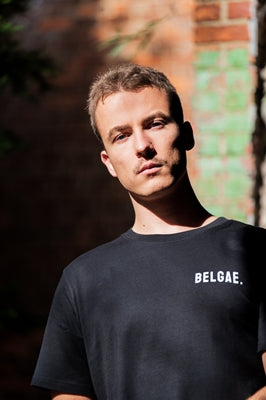Introduction to Regenerative Medicine
Regenerative medicine is one of the most promising branches of the vast set of alternative therapeutic approaches offered by the field of alternative sciences.
Its goal is simple: it seeks to restore harmony between the physical, mental and spiritual bodies so that the natural healing process can take place without harmful external interference.
Contents :
1. Definition of regenerative medicine
2. The main principles of regenerative medicine
3. History of regenerative medicine

Definition of Regenerative Medicine
Regenerative medicine is an innovative form of treatment that aims to restore, replace or repair damaged and/or failing tissues. It draws on techniques from alternative sciences to improve the quality of life by stimulating the human body's natural self-healing process.
Treatments include the use of stem cells, hyaluronic acids and various biological and nutritional therapies aimed at increasing the body's natural ability to heal injuries and chronic illnesses.
This discipline not only offers relief to patients with serious or incurable illnesses, but also a holistic practice focused on general daily well-being. The effective implementation of this practice therefore allows for a better level of physical and mental health for all those who use it.
Regenerative medicine is thus an innovative treatment that can be used to increase the body's natural disposition to heal various injuries and chronic illnesses. The treatments offered are varied, ranging from cryotherapy to biological or nutritional therapies, offering several solutions adaptable to the specific needs of the patients concerned.

The main principles of regenerative medicine
Regenerative medicine is thus a parallel science which focuses on the capacity of the human body to heal itself. It implements original principles to stimulate the immune system and promote a natural healing process.
The main principles of regenerative medicine can be grouped around three pillars:
- maintaining a good nutritional balance
- the judicious use of dietary supplements and nutraceuticals
- an active practice of physical exercises adapted to individual needs.
These practices allow the body to regain its internal harmony so that it can function properly, and thus initiate a natural process of cellular rejuvenation.
The rigorous application of the fundamental principles of regenerative medicine therefore makes it possible to achieve better physical, mental and spiritual quality, and to increase our longevity in terms of optimal health.

History of regenerative medicine
Regenerative medicine is a parallel science that got its start centuries ago
In fact, this practice dates back to ancient Greece, where it was known as a type of alternative medical art.
Today, this form of therapeutic care focuses on the use of herbs and other plant-based remedies to treat a variety of physical and emotional conditions. The fundamental principles behind regenerative medicine are to encourage the immune system so that it can fight infections more effectively and maintain a good level of overall health of the patient through the healing properties of natural herbs.
The treatments offered generally include varieties of breathing, nutritional, spiritual or psychological exercises aimed at restoring harmony between the patient's physical and mental body.
Correct implementation of the essential principles can therefore provide significant improvement in patients suffering from serious chronic or autoimmune diseases such as rheumatoid arthritis or diabetes.
In conclusion, regenerative medicine offers considerable benefits to general health through natural herbs rather than synthesized chemicals to treat various physical and mental problems.
In addition, this ancestral practice can help significantly improve the quality of life in certain patients with serious chronic and autoimmune diseases.

Main benefits of regenerative medicine
Regenerative medicine emphasizes the use of alternative approaches to stimulate the biological repair process, so that damaged tissues are restored.
The benefits it offers are numerous. Regenerative medicine can in particular:
- relieve chronic pain
- improve joint mobility
- promote better sleep and a more positive general state.
In addition, it can contribute to the treatment or complete management of a variety of autoimmune diseases such as diabetes or certain cancers.
Finally, it allows patients suffering from a serious or irreversible injury to regain an optimal quality of life thanks to the innovative treatments offered by this alternative discipline.
Regenerative medicine therefore offers therapeutic solutions that can help restore impaired bodily and mental functions and bring significant improvement on the physical and psychological level of the people concerned.

How does a regenerative medicine session work?
A physical exam is usually the starting point, followed by an energy assessment.
To support healing, tools such as nutrition, herbal medicines or acupuncture can be used. In some cases, more complex interventions such as surgery or thrombolysis may be necessary to achieve an optimal result.
Finally, the practitioner will give the patient some additional advice regarding their lifestyle and diet so that they can maintain this optimal state after receiving care in the office. Dietary changes tailored to each individual situation help bring about better overall health and encourage the human body's natural healing process.

